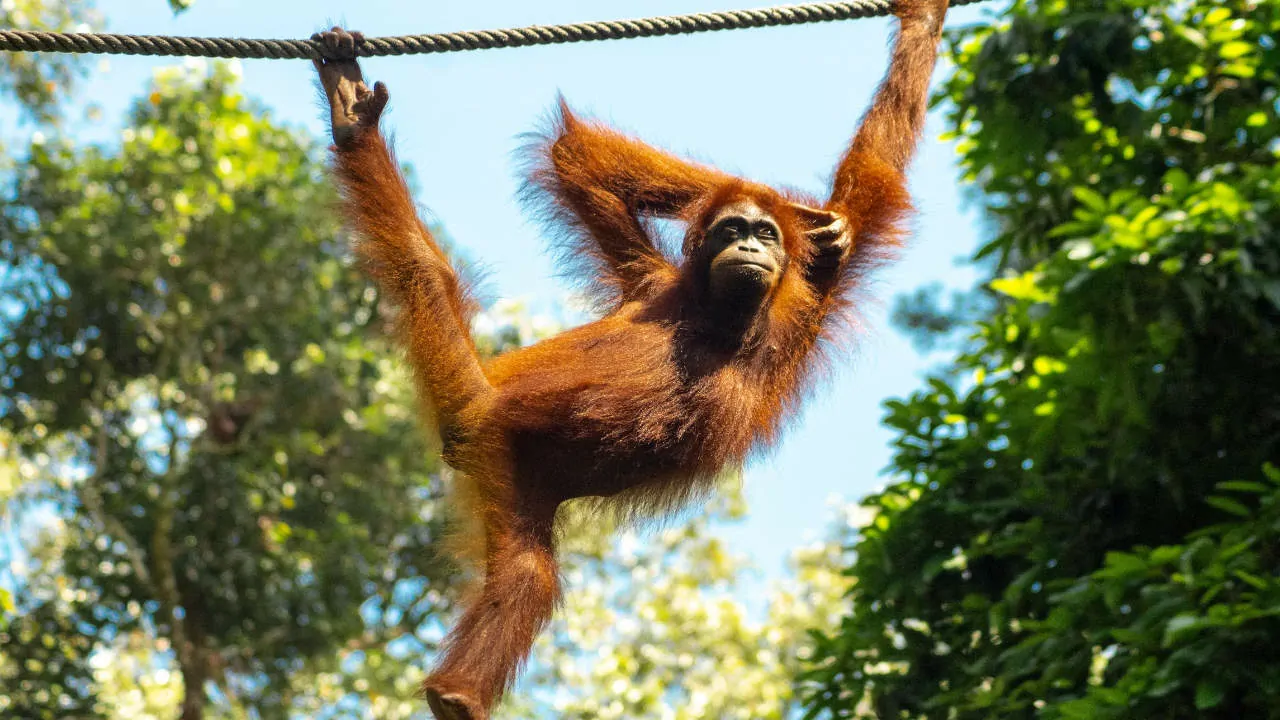The majestic orangutan is one of the most intelligent and fascinating primates in the world. But did you know that the name orangutan actually comes from the Malay language? The word is a combination of orang, meaning person or man, and hutan, meaning forest. Together, orangutan translates to man of the forest — a name that perfectly reflects the animal’s natural habitat.
Orangutans are found only in the tropical rainforests of Borneo and Sumatra, and they are known for their deep reddish-brown fur and long arms. They are the largest tree-dwelling mammals and spend most of their lives high in the forest canopy. Their intelligence is remarkable — they use tools, solve problems, and even build nests to sleep in each night.
The name orangutan not only highlights the species’ environment but also emphasizes their close connection to humans. Sharing about 97 percent of our DNA, orangutans are among our closest relatives in the animal kingdom.
Sadly, orangutan populations are under threat due to deforestation, habitat loss, and illegal wildlife trade. Their forest homes are being cleared for palm oil plantations and logging, leaving fewer safe spaces for them to live and thrive.
Understanding the origin of the word orangutan helps us appreciate their cultural and biological significance. These “men of the forest” are not only a symbol of wild beauty but also a reminder of our responsibility to protect the natural world.
